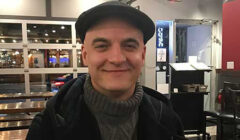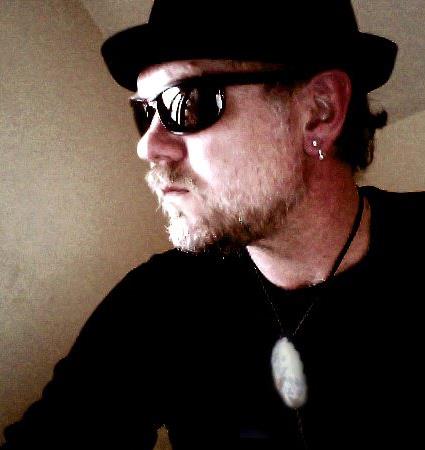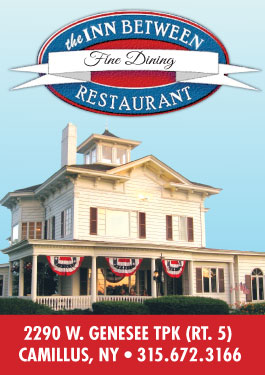Brian Francis
Brian Francis:Piecing Together Fragments of His Memory to Tell a Story
 Chuck Schiele: How long have you been playing music and where does your music path begin?
Chuck Schiele: How long have you been playing music and where does your music path begin?
Brian Francis: My whole life, really. My mom’s mom hired herself out to play piano at cocktail parties. My dad’s mom taught elementary school and played piano in the classroom. My dad’s uncle Phil played pedal steel in a country band. Back when you could still make a good living doing that. He’s still playing. Shopping malls down in Florida. He’s 90 something. Both my parents are musically talented, although neither of them did much with it. They focused on other things. But I was in piano lessons early, like when I was 3. My mom’s got a story about me playing my guitar and singing Michael Rowed the Boat Ashore for her grandma right before she passed and I played organ at my dad’s grandpa’s wake. Probably not well, but I remember my grandfather being really proud of me. He was the one who drilled it into my head that songs were important. Anybody can just play, he said. It takes a real musician to learn songs and carry them. It’s a funny thing, how we piece together all these fragments of memory to tell a story. My mom took piano lessons when she was pregnant with me. She was playing out of this old Paul Simon songbook. I still have it. His music has always been so familiar and comforting to me. I’m sure there’s a connection. It’s in the blood, really. There’s music in everything. In the rhythm of the heart and the rhythm of breathing. The harmony of the spheres.
CS: Please characterize your music.
BF: American roots, but I listen to a lot of different things. I hear echoes of that in what I do. But I’m a blues and roots man in my heart and soul. It’s always been what I’ve been most called to. There have been a few divergences and digressions, a lot of them, really, but I always seem to wind up going back to folk music, early rock n roll and the blues. It’s what I most love.
CS: You have an extensive path in your career, involving some time on the west coast.
BF: Yup. I’ve been blessed. I’m grateful for this. I love to play.
CS: I know you play solo a lot. And I know you have a project or two involving others, so please tell us about those involvements.
BF: I have a recording project, Brian and the Beautiful Birds, which has been the primary outlet for my original music. I play in a duo with Curtis Waterman. Curtis is a legend. Great harmonica player and musician, even better man. It’s an honor and a privilege to work with him. I also play lead guitar in Cornbred. Cornbred is a lot of fun. I just rip solos. It’s like being a kid again only I have a better amp and I know a lot more about the neck. It’s all a process. That’s what I love about it. I feel like I’m getting better. Like I’ve got room to grow.

CS: As a songwriter, what do you feel you have to say…generally…specifically?
Whatever. Or is it not like that?
BF: It depends on a whole lot of variables. I tend to write a lot. I live in my recording studio. Literally, I converted my apartment. God love my neighbors. I know I do.
CS: Do you have any particular approach to writing? How do you do it?
BF: Usually starts with an itch and it’s finished when that itch feels scratched.
CS: What do you feel you’ve learned or have gotten out of living in a way that is devoted to music?
BF: Everything. Let’s start with: a broader and deeper relationship with art and music. It takes time and attention to develop that. I’ve also lived a kind of miraculous life, in many ways, I’m aware of this. The catalyst for much of that has been either innate or circumstantial so it’s hard to take credit for it. But art and music has been at the center of all of it.
CS: Who are the great writers making your top list?
BF: I like Chopin and Debussy, Paul Simon is in there. Townes Van Zant. I go through phases. I’ve been listening to a lot of blue grass and old country lately. That and harmonica blues. Curtis and I are going to make a blues record. So I’m doing pre production. Sonny Boy Williamson is at the top of that list. Him and Sonny Terry. But a lot of what I love about Sonny Terry recordings is Brownie McGhee’s singing. They’re so intertwined. That’s one of the great things about collaborating with other artists. I love learning their music. Both how they play and what they listen to. If it’s good it’s good. I’m blessed with broad taste.

CS: Tell us a highlight or two from your music career?
BF: There’s a few. What comes to mind is opening for the English Beat at a club called the HopMonk in Sebastopol, which is just west of Santa Rosa out in Northern California, it’s part of a chain. They brew great craft beer, sell lots of burgers and put on concerts. Bill DeCarli, the general manager, is a friend of mine. They had a beer garden at two of their properties and theaters at three of them. I’d play in the beer gardens, often times, a couple times in a weekend. But once a month, or so, he’d have me open for somebody in one of the theaters. One of those bands was the English Beat. Apparently the singer is a bit of a diva. I’d gotten the gig because he’d never heard of me and didn’t feel threatened. Bill gave me the play by play later. What I know is that I was in fine form that night. I’d played an afternoon gig that had gone well and I was all warmed up. The voice was good, the playing was on and the jokes were funny. About 400 people in the hall. After my set I went up to the sound booth to hang out with my buddy Jermey French who was the sound engineer and production manager that night. We’re sitting there hanging out. Waiting for the band. Half hour. 45 minutes. Nothing. Bill comes up. He’s a big guy. Gregarious, jovial and he was laughing. He says: Singers pissed man. He’s throwing a temper tantrum. Won’t leave the green room. He says you upstaged him.
Bill didn’t care. He was delighted by the pettiness. He also knew that if the band didn’t perform they were in breach of contract and had liabilities in the tens of thousands of dollars and people were drinking lots of beer while they waited. So why complain about things you can’t control? It took an hour and a half but they came on. Honestly, they blew me away. It was electric. One of the best concerts I witnessed at that club. I opened for the California Honeydrippers there too. That’s the best club band I’ve ever seen in person and they’re really sweet guys. That’s always a plus. I remember them being really nice to me. Not everybody was. That’s one of the funny things you learn about show business. The worldest biggest prick suddenly becomes all sweet and smiles when the lights come on. It’s a show and it’s a business. I feel like it’s important to remember that.
CS: What do you have to say to someone getting themselves into the craft and world of songwriting – or music in general?
BF: Stick with it. Stay disciplined. Cultivate your passion. Nurture your curiosity, protect your sensitive heart and don’t take the business personally. Music is art. Show business is a business. Art and business have different aims. I think, if you’re going to survive, it’s important to learn to compartmentalize things and stay connected to what drew you in in the first place, which is the music. Right? Priorities. If you don’t stay connected to your passion it’s easy to drown in all the pettiness and petty jealousies. Take care of your business but keep your focus on the music. It’ll keep your heart light and you’re going to need that because it ain’t an easy path.
CS: What’s in your musical near future?
BF: I’m producing a couple records. Both for myself and other people. Production is fun. I love sorting out the logistics and what not. There’s the arrangements and recording, obviously, and the performances and technical aspects. That can all be fantastic. But I like working out schedules and figuring out the order of things too. Like the saying goes: do what you love and you’ll never work a day in your life.
CS: How do we stay informed of your shows and such?
BF: It’s out there. Brian and the Beautiful Birds is up on all streaming platforms. We got nominated for a Sammy this year, last year too. I think what’s up there now is pretty good. But the stuff we’ll be releasing later this spring is better. It’s a process. I love that.
CS: Thank you for taking some time to talk with us, Brian. It’s been a pleasure.
BF: Likewise, Chuck, Thank you!

Chuck Schiele Creative Services
https://chuckschielecreative.crevado.com/
Chuck Schiele Music
https://chuckschielemusic.com/home
“Imagination is more important than knowledge.”
~Albert Einstein











